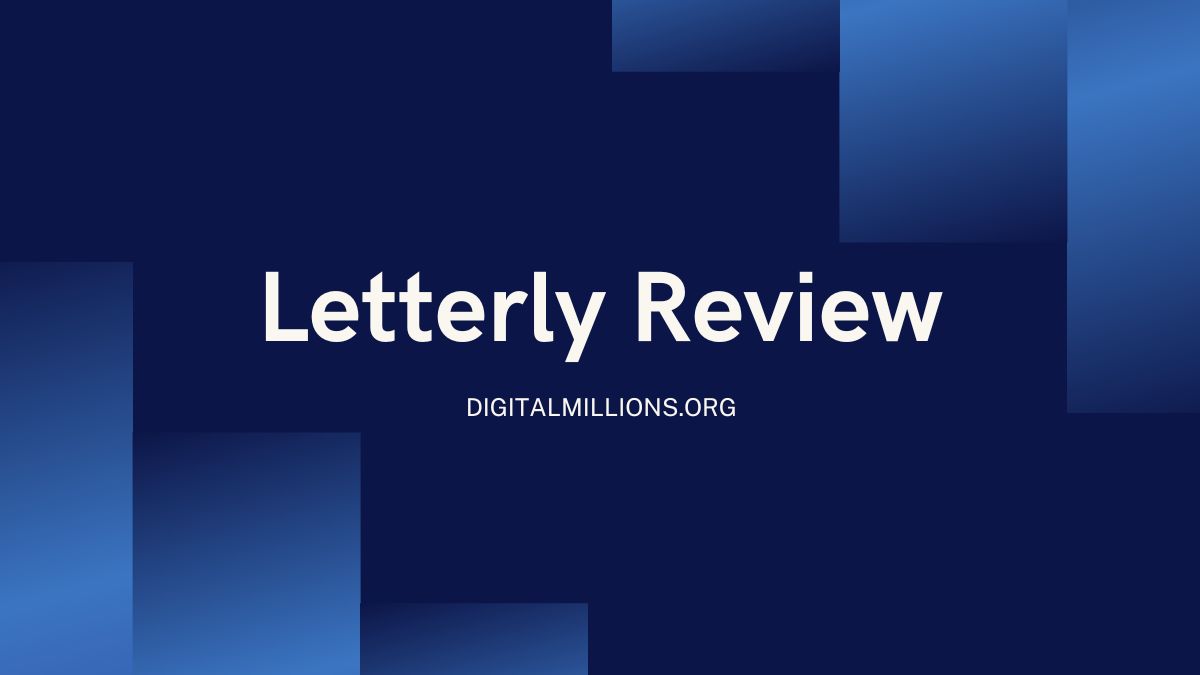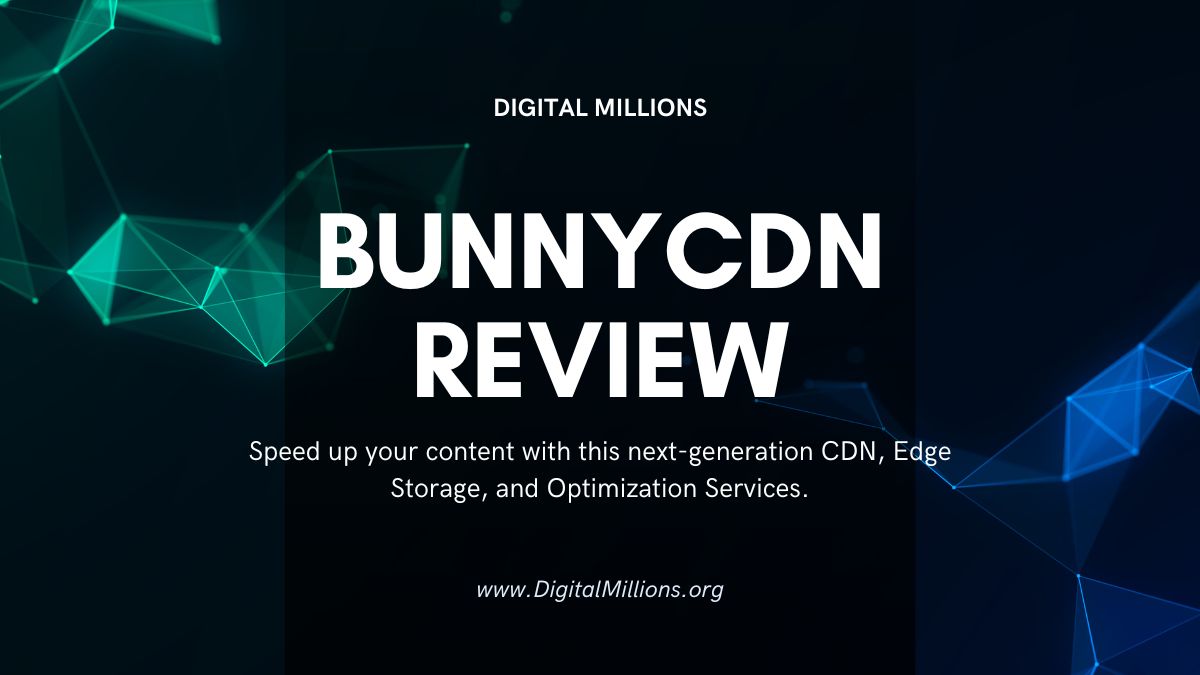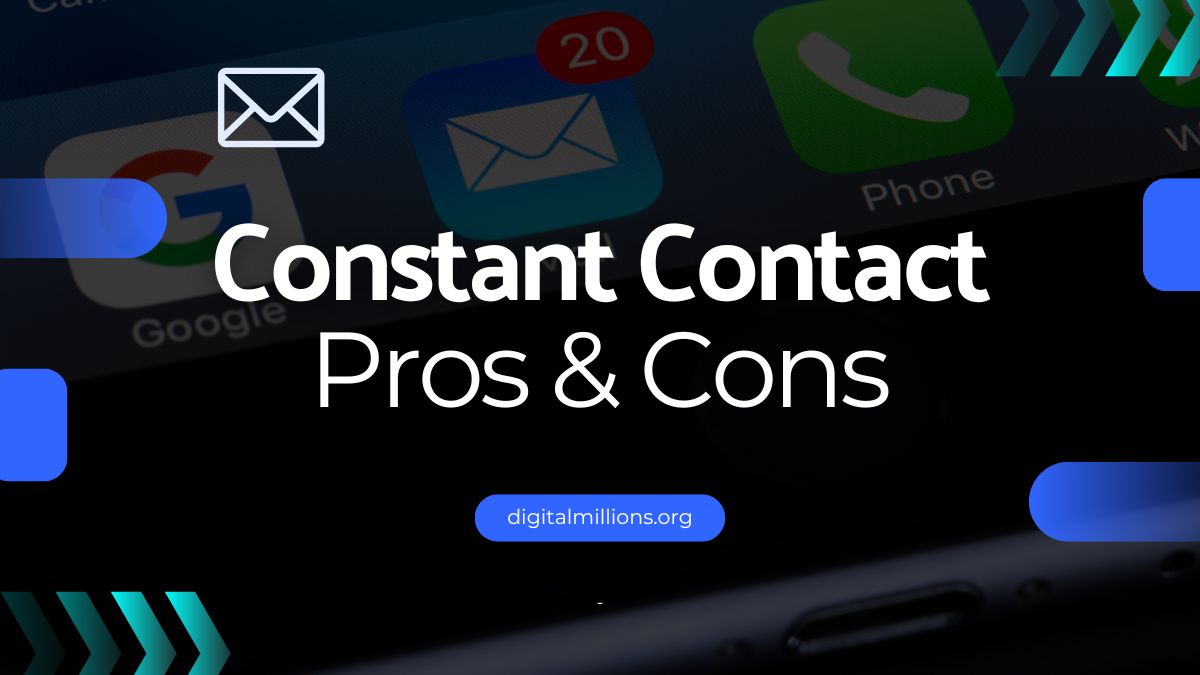Getting ideas down fast can be tough sometimes.
Our brains often race way ahead, but our fingers just can’t keep up on the keyboard or phone screen. It’s frustrating when great thoughts slip away!
What if you could just talk your ideas into perfectly written text?
That’s the big promise behind tools like Letterly.
Letterly is an app that uses Artificial Intelligence (AI) to listen to your voice.
It doesn’t just type out what you say, like basic dictation. It claims to magically clean up your speech, fix mistakes, remove filler words, and format it nicely.
It sounds almost too good to be true, right?
I was definitely curious.
Could an app really turn my rambling voice notes into polished writing?
Or was it just clever marketing hype?
I decided to put Letterly to the test myself.
I downloaded it, used it for various tasks, and dug into its features to see the real deal.
In this honest Letterly Review, I’m sharing everything I learned from my hands-on experience. Does it actually save time? Is the AI rewriting feature really that smart?
Is it worth considering in 2025 and beyond?
Here’s what you’ll find out in this review:
- Exactly what Letterly does (and doesn’t do).
- The features that genuinely impressed me during testing.
- The annoying bits and limitations I ran into.
- My final verdict: Is it truly good enough, or mostly hype?
Let’s get into my findings.
Table of Contents
✖
What Exactly is Letterly?
Letterly is an application that takes your spoken voice and changes it into written text. You talk into your phone or computer using the Letterly app. It listens. Then, it turns your voice into written words.
But wait, there's more!
Letterly isn't just a simple voice recorder or transcription tool (that's the word for turning speech into text). It uses Artificial Intelligence, or AI. This AI doesn't just write down what you say, word-for-word, including all the "ums" and "uhs" and moments where you lost your train of thought.
Nope.
Letterly's AI tries to clean it up. It calls this part "Magic".
It takes your messy, maybe rambling speech and turns it into clean, easy-to-read text. It can fix grammar, cut out filler words, and even change the style or format.
The company says its AI was trained by linguists – people who are experts in language.
Letterly tries to solve some common problems:
- Typing feels slow and boring.
- You stare at a blank screen, not knowing where to start.
- Your notes are messy and hard to understand later.
- You put off writing emails or messages because it feels like a chore.
- Your brain and voice are just faster than your hands!
I think the main idea is to make writing easier and faster by starting with your voice.
📖 Check out: Novel AI Review: Is It The Best AI Story Generator Tool?
My Test Drive: Using Letterly
I had to try this thing out for myself to see if it actually works as advertised.
Getting started was pretty easy. I found the Letterly app on the App Store (it's on Android too) and downloaded it. There's also a web version you can use on your computer, and even a Mac app. I mostly used the phone app and the web version. They sync up, which is nice. If I recorded something on my phone, I could see it later on my computer.
My first impression? The app looks clean. Simple design, not cluttered with a million buttons. It has dark and light modes, which is always a plus in my book. Using it felt pretty straightforward. You hit a button, start talking, and hit stop when you're done.
So, what did I use it for?
I started simple. I tried recording quick ideas that popped into my head while walking around. Like, "Remember to research llamas for that project" or "Idea for a story: talking squirrel." It captured those pretty well.
Then I tried something a bit longer. I rambled for a few minutes about a game I was playing, just talking normally, with pauses and "likes" and stuff. I wanted to see how the AI cleanup feature worked.
Did it feel natural? Talking instead of typing felt… different. A little weird at first, maybe? But also kinda freeing. I didn't have to worry about spelling or typing speed. I just talked.
I've played around with a lot of apps over the years, especially tools that promise to make things easier. Letterly definitely caught my attention because of that AI rewriting part. It seemed like more than just dictation.
Good Features Deep Dive
Letterly packs in quite a few features. I'll break down the ones that stood out during my testing.
Talking to Text: How Good Is It?
The basic job is turning voice into text. Letterly does this quite well.
Honestly, I was impressed. The accuracy was really good. Much better than the standard voice typing built into my phone (like Siri or the Google Assistant). Those often make weird mistakes or miss words.
Letterly seemed to understand me quite well, even when I used slightly trickier words or didn't speak perfectly clearly. It wasn't 100% perfect every single time, nothing is. It was accurate enough that I didn't have to spend ages fixing basic transcription errors.
Some users have said it's the most accurate app they've used.
I wouldn't go that far maybe, but it's definitely up there. It rarely lagged and seemed to keep up with my speech pretty well. I'd say the transcription part alone is solid.
The AI Magic: Rewriting Your Words
This is where Letterly gets interesting.
It's not just about getting your words down; it's about making them better.
After Letterly transcribes your voice, you can choose from different AI rewrite options.
This is the "Magic" part they talk about.
What does it do?
- Cleans Up: It gets rid of all those filler words like "um," "uh," "like," "you know." It instantly makes your writing sound more polished.
- Fixes Grammar: It can correct grammar mistakes you might make while speaking.
- Restructures: If you rambled a bit, it can rearrange your sentences to make more sense or flow better.
- Formats: It can add bullet points, headings, or other formatting to make the text easier to read.
I found this feature genuinely useful. I could just talk out my thoughts, however messy, and then with one tap, Letterly would often turn it into something much clearer and more organized.
I think this AI rewriting is Letterly's biggest selling point. It's what makes it different from just using regular voice dictation. Why not give Letterly a try and see the AI rewriting for yourself?
So Many Rewrite Styles!
Letterly doesn't just have one "clean up" button.
It gives you a bunch of options for how you want the AI to rewrite your text. I've found mentions of different numbers (25+, 27+, over 30), but there are definitely lots to choose from.
Some examples include:
- Magic: Let the AI decide the best way to rewrite it.
- Slightly: Just clean up the text a little bit.
- Significantly: A more thorough cleanup and restructuring.
- Structured: Organizes your text with bullet points or headings.
- Shorter: Makes your text more concise.
- Make a list: Turns your points into a neat list.
- Social Media Posts: Formats text specifically for platforms like X (Twitter), Facebook, or LinkedIn.
- Emails: Drafts casual or formal emails.
- Summaries: Creates short or detailed summaries of what you said.
- Journal Entry: Formats it like a diary entry.
There are many more, like specific writing styles (business, formal) or options to make sentences shorter.
I made a quick table for you to easily compare some common ones:
Note: Can’t see the whole table on smaller screens? Try swiping sideways, scroll left or right.
| Rewrite Style | What It Does (Basically) | Good For… |
|---|---|---|
| Magic | AI does its best guess at cleaning up. | Quick general improvements. |
| Structured | Adds bullets or headings. | Organizing notes, plans, ideas. |
| Shorter | Condenses the text, keeps main points. | Making messages brief. |
| X Post | Formats for a short X (Twitter) message. | Quick social media updates. |
| Casual Email | Writes in a friendly, informal email style. | Messaging friends or colleagues. |
| Formal Email | Writes in a polite, professional style. | Official communication. |
| Meeting Takeaways | Pulls out key points from meeting notes. | Summarizing what was discussed. |
Can you create your own custom styles or prompts?
The information here is a bit mixed. I've found some reports saying yes, you can give simple instructions. Others say no, you currently have to rely on the built-in options.
Based on my testing, it seemed like I had to pick from their list, but maybe custom options are coming or are hidden somewhere? I recommend checking their site for the latest info on this.
Even without custom prompts, the existing options cover a lot of ground. It's pretty neat to dictate some thoughts and have Letterly instantly turn them into a draft Facebook post or a structured list.
Speaks Your Language (Literally!)
This feature is pretty great, especially if you speak more than one language or have friends who do. Letterly supports a ton of languages – I've seen reports of over 90, maybe even 99!
It can automatically figure out what language you're speaking, or you can tell it beforehand.
You can dictate notes in Spanish, French, German, Russian, Portuguese, Italian, and many, many others, and it should understand you.
It doesn't stop there. Letterly also has a built-in translation feature.
So, you could potentially dictate something in English and have Letterly translate it into Spanish, or vice versa. One review mentioned it might not be professional translator quality, but for basic communication or understanding, it sounds very useful.
I think it makes Letterly useful for a wider range of people globally.
Works Offline? Yep!
You don't need internet all the time with Letterly, mostly.
You can record your voice notes even when you're offline.
This is great if you have an idea while on a plane, in the subway, or just somewhere with bad signal. Just open the app, record your thought, and it's saved.
Now, does the transcription and AI rewriting work offline?
While one suggested the recording is offline, but the processing happens when you're back online. My experience felt like the main AI stuff needed a connection.
Being able to capture the audio offline is the key part – you won't lose your idea.
It also works with your screen turned off.
You can start recording, lock your phone, put it in your pocket, and keep talking. Useful!
Unlimited Power (with Pro/LTD)
If you end up liking Letterly, you'll probably bump into limits on the free version. The paid plans, especially the Letterly AppSumo Lifetime Deal that pops up sometimes, offer unlimited use.
What does unlimited mean here?
- Unlimited recordings
- Unlimited transcriptions
- Unlimited AI rewrites
This is fantastic if you plan to use it a lot.
A "Lifetime Deal" (LTD) means you pay once, and you get access forever (or for the lifetime of the product). This is often way cheaper in the long run than paying every month or year.
I'll talk more about pricing later, but having unlimited access is a big benefit of the paid options.
Edit Your Thoughts
AI is smart, but it's not perfect. Sometimes Letterly might misunderstand a word, or you might want to phrase something differently even after the AI rewrite.
Good news: You can edit the text.
- You can edit the original transcription before you even use the AI rewrite.
- You can also edit the final rewritten text.
It gives you full control. You can use the AI for a quick first draft or major cleanup, and then fine-tune it manually. I found this essential for getting things exactly right.
Staying Organized (Sort Of)
If you start making tons of notes in Letterly, how do you keep track of them all?
Letterly has a Tags feature. You can add tags (like labels, e.g., #ideas, #school, #blog) to your notes. You can even change the color of the tags.
These tags show up at the top, which helps a bit. You can tap a tag to see all notes with that label.
But… is it enough?
Honestly, for me, not really. Especially if I were using this for lots of different things – work notes, personal journal, content ideas. Several reviews online mentioned this too.
There's no way to create folders.
Everything just kind of sits in one long list, maybe sorted by date or tags.
If you only make a few notes here and there, it's probably fine. But if you're a heavy user, I can see it getting messy and hard to find older notes quickly. This is definitely an area I think Letterly could improve. I would probably want folders if I used it daily.
Finding Your Notes Later: Search!
While folders are missing, there is one saving grace for finding stuff: Full Text Search.
You can type a word or phrase into a search bar within Letterly, and it will look for that word inside all your notes – both the original transcriptions and the rewritten versions.
This is actually very helpful!
Even if your notes aren't perfectly organized with tags, you can usually find what you're looking for if you remember a key word or two from the note.
So, if you recorded that llama idea, searching for "llama" should bring it right up.
This search capability makes the lack of folders a little less painful.
See the Before & After
One small but neat feature is that you can easily compare the original text (exactly what Letterly heard) and the rewritten version produced by the AI.
Sometimes the AI might change the meaning slightly, or you might just prefer how you originally phrased something. Letterly lets you swipe (at least on the mobile app, I think) or toggle between the raw transcription and the various AI rewrites you've generated.
It helps for checking the AI's work or just seeing how much it actually changed. It gives you transparency and control over the final text. I appreciate being able to see the starting point.
Security Matters
With any app where you're putting personal thoughts or information, security is important. I found information stating that Letterly ensures data protection and security.
While details aren't provided, it's good to know they acknowledge this as a priority, especially since you might be recording sensitive ideas or notes.
📖 Check out: 7 Best WordPress Security Plugins Compared and Ranked
Who is Letterly Actually For?
After playing around with it, who do I think would actually find Letterly useful?
It seems like it could be helpful for a few different types of people:
- Students: Need to take quick notes in class (if allowed!)? Want to brainstorm ideas for a paper without staring at a blank page? Letterly could help capture those initial thoughts fast. Just talk it out, then clean it up.
- Content Creators: If you make videos, write blog posts, or manage social media, Letterly could speed things up. Dictate script ideas, draft Facebook or X posts, outline articles. Turning spoken ideas into usable text quickly can be a real time-saver. Faster content creation could even help you earn money online if that's your goal. I see this being really useful for drafting those quick social media blurbs.
- Busy People: Always on the go? Need to fire off emails or messages quickly? Dictating a message and having Letterly clean it up into a proper email could save tons of time compared to thumb-typing. Great for reminders and to-do lists too.
- Journaling Fans: Want to keep a diary but find writing tedious? Talking out your thoughts and feelings can feel more natural. Letterly has journal-specific rewrite options. Some users said it finally helped them journal consistently. I might even try this myself.
- People Who Think Faster Than They Type: If your brain races ahead of your fingers, dictation is your friend. Letterly takes it a step further with the cleanup.
- People Facing Typing Challenges: For individuals with dyslexia or physical limitations that make typing difficult or painful, Letterly could be a fantastic accessibility tool. It lowers the barrier to getting thoughts down in writing.
Basically, if you find yourself wishing you could just talk instead of type sometimes, Letterly might be right up your alley. It's particularly strong for capturing ideas quickly and turning rough speech into something more polished without manual editing (or at least less manual editing).
I believe it shines for short-form content and quick communication.
📖 Check out: 21 Legitimate Ways to Make Your First Dollar Online
The Price Tag: Deals & Costs
Let's talk money. How much does Letterly cost?
There are a few ways to get it, and the price can vary quite a bit.
The most talked-about option is the Letterly AppSumo Lifetime Deal.
AppSumo is a website that offers deals on software, often lifetime access for a one-time price. Letterly has appeared there, sometimes cycling on and off.
This deal is often highly rated by users – scoring around 4.7 out of 5 tacos (AppSumo's rating system) from hundreds of reviews when available, which shows people really like the value.
When it's available, the AppSumo deal offers tiers like these:
- Plan 1: $59 one-time payment for a license to use Letterly on 1 device.
- Plan 2: $118 one-time payment for 2 devices.
- Plan 3: $207 one-time payment for 4 devices.
- You can often "stack" more codes (buy the deal multiple times) to get licenses for even more devices (like 6, 8, 20, or potentially unlimited).
This lifetime deal includes unlimited recordings, transcriptions, and rewrites, plus access to future updates on the "Pro" plan. If you plan to use Letterly long-term, this deal offers great value compared to paying monthly or yearly. Many users rave about this price.
$59 forever seems like a steal if the tool works for you. You get a 60-day money-back guarantee with AppSumo deals too, so you can try it relatively risk-free.
You can look for the Letterly deal on AppSumo here.
Note: Can’t see the whole table on smaller screens? Try swiping sideways, scroll left or right.
| AppSumo Deal Tier | One-Time Cost | Device Licenses Included | Typical Rating |
|---|---|---|---|
| 1 Code (Plan 1) | $59 | 1 Device | ~4.7 / 5 |
| 2 Codes (Plan 2) | $118 | 2 Devices | ~4.7 / 5 |
| 3 Codes (Plan 3) | $207 | 4 Devices | ~4.7 / 5 |
| 4 Codes | $236 | 6 Devices | ~4.7 / 5 |
| 5 Codes | $295 | 8 Devices | ~4.7 / 5 |
| 10 Codes | $590 | 20 Devices | ~4.7 / 5 |
(Prices reflect stacking the $59 base deal. Rating is typical when deal is live)
What if you miss the AppSumo deal or don't want lifetime access?
Letterly also has regular subscription pricing:
- Around $9 or $10 per month.
- Around $70 to $100 per year.
Paying yearly is cheaper than paying monthly. Compared to the $59 lifetime deal, these subscription costs add up quickly. $10 a month is $120 a year!
Is there a free way to try it?
- Yes, Letterly offers a free 7-day trial of its Pro features. You might not even need a credit card to start it. Pro tip: If you do sign up for a trial with a card, set a reminder to cancel before it ends if you decide not to keep it!
- There might also be a basic free version with limits on usage, but the main power comes from the Pro features (like unlimited rewrites).
So, is the price fair?
For this Letterly Review, I'd say the AppSumo Lifetime Deal is absolutely worth it if you find the tool useful after trying it.
The regular subscription price feels a bit high unless you are using it constantly for work or content creation where the time savings justify the cost.
I suggest trying the trial first.
📖 Check out: Semdash Lifetime Deal: All Pricing, Tiers & Features Explained
The Not-So-Great Stuff (Honest Talk)
No review is complete without talking about the downsides.
Letterly is neat, but it's definitely not perfect. During my testing, and looking through user feedback, a few limitations became clear. Let's get real about them.
The 15-Minute Recording Limit
This is probably the biggest complaint I saw, and I have to agree. Each individual voice recording in Letterly cannot be longer than 15 minutes.
Why is this a big deal?
- Meetings: Most meetings, even short ones, last longer than 15 minutes.
- Lectures/Classes: Forget trying to record a whole class session.
- Interviews: Often longer than 15 minutes.
- Brainstorming: Sometimes you just want to talk and talk without stopping.
This limit feels really restrictive. If you want to record something longer, the only workaround is to stop the recording and immediately start a new one, creating multiple 15-minute chunks. That's clunky and easy to mess up. You might miss something while fumbling with the app.
I wonder why this limit exists. Maybe it's technical, maybe it's to manage server load? Whatever the reason, many users (myself included) wish it was much longer – like 60 minutes or even unlimited.
For transcribing long-form audio, Letterly just isn't the right tool right now because of this.
Getting Organized Needs Work
I mentioned this before, but it deserves another look under the "not-so-great" heading. The lack of folders or better organizational tools is a real drawback for power users.
Tags are okay for basic filtering, but think about having hundreds of notes for different projects, classes, or ideas. Scrolling through a single long list, even with tags, would get overwhelming fast. (Luckily, the Full Text Search helps mitigate this, but folders would still be better).
If you're just capturing fleeting thoughts, it's fine. But if you want to use Letterly as a serious note-taking system or for building up longer pieces of writing from multiple voice notes, the current organization system feels too limited. I would probably get frustrated trying to manage a lot of content.
Getting Stuff Out (Export Issues)
So you've dictated your thoughts and used the AI to clean them up. Great! Now you want to use that text somewhere else – in your notes app, a document, an email.
Letterly primarily exports text in Markdown format.
Markdown is a simple way to add formatting (like bold text, italics, lists, headings) using plain text characters (like asterisks * or hashtags #). Programmers and some writers use it a lot.
The problem?
Many common apps, like standard phone notes apps or simple text editors, don't understand Markdown.
If you copy Markdown text from Letterly and paste it into Apple Notes, for example, you might see the weird characters (*bold text*) instead of actual bold text. This is annoying.
Users wish Letterly offered more export options, like:
- Plain text (no formatting)
- Rich text (keeps bold, italics, etc. that work in most apps)
- HTML (for web stuff)
Also, there's no way to automatically send your notes to other popular apps like Notion, Google Docs, Evernote, or your email. You have to manually copy and paste everything. More integrations with other services are high on the user wish list, but there's no clear timeline for when (or if) they might arrive. This lack of smooth connection to other workflows makes it feel a bit isolated.
Weird Login Thingy
This one is a bit strange. Letterly doesn't use a traditional username and password system. Instead, it uses a "magic link" system. You type in your email, and it sends you a special link to click to log in.
Some people find this annoying or less secure than a password. It's just… different.
Also, to use Letterly, it seems you need to link a Google account.
Not everyone wants to connect every app to their Google account. Some users feel this is unnecessary and raises privacy concerns (like unwanted tracking or data sharing).
Having alternative login methods (like Apple ID or just a regular email/password) would be better.
Knowing they state they focus on data protection helps a bit, but login options would still be nice.
The Future-Proofing Question
One interesting point some users bring up is whether Letterly might become less special over time. As operating systems like iOS and Android get smarter, their built-in voice dictation and AI features might improve and start offering similar cleanup tools. Could Apple or Google eventually build something like Letterly right into our phones? It's possible. This is something to keep in mind – how long will Letterly stay ahead of the curve? It's a fair question, I think.
Other Little Annoyances
A few other smaller things cropped up:
- No Audio Uploads: You can't upload existing audio files (like a recording you made elsewhere) to have Letterly transcribe and rewrite them. It only works with recordings made directly in the app.
- Voice Commands? One user mentioned wishing they could give instructions by voice while recording (like "start list" or "new paragraph"). This isn't possible currently.
- Multiple Speakers: Letterly seems designed for one person speaking. Reviews suggest it struggles to understand or separate voices if multiple people are talking on the same recording. Tools like Otter.ai are better for multi-speaker meetings.
- Future Updates: Some users expressed frustration about a lack of clear communication from the Letterly team regarding when requested features (like longer recording times or folders) might be added.
These aren't necessarily deal-breakers for everyone, but they add to the list of things to be aware of. No app is perfect, I guess.
📖 Check out: 10 Top Best Grammarly Alternatives Compared [Free & Paid]
Letterly vs. The Others
How does Letterly stack up against other similar tools?
- vs. Built-in Phone Dictation (Siri, Google Assistant): Letterly wins easily here. Its accuracy is generally much better, and the built-in dictation has ZERO AI rewriting or cleanup features. Letterly's ability to remove "ums" and restructure sentences is a huge advantage.
- vs. Otter.ai: Otter is very popular for transcribing meetings, largely because it can handle multiple speakers and identify who said what. Letterly struggles with this. However, Otter is generally more expensive (no lifetime deal offered), and some find its interface clunkier. Letterly is often preferred for single-person dictation, quick capture, and its powerful AI rewrite styles.
- vs. VoiceNotes.com: This seems like a closer competitor, also sometimes found on AppSumo. I've seen reports suggesting VoiceNotes might have a slightly smoother interface on mobile and a feature to ask AI questions about your notes. Letterly might be faster at transcription and have more built-in rewrite options. VoiceNotes might be slightly better value depending on the deal. Both seem like good options for voice-to-text.
Letterly isn't trying to be the best meeting transcription tool (like Otter).
Its sweet spot seems to be single-person voice capture combined with powerful AI editing and rewriting. If that's what you need, it's a strong contender.
I think its AI rewriting is its unique selling point against most competitors.
My Final Verdict: Hype or Helpful?
Time for the final judgment call in this Letterly Review. After testing it out and digging into what it offers, is Letterly good enough, or is it just overhyped? Has it earned recognition like being named AppSumo Tool of the Year for 2024 or featured on Product Hunt?
I looked at the good and the bad:
The Helpful Stuff (The Wins)
- Excellent Transcription Accuracy: It understands speech really well.
- Great AI Rewriting: This is the star feature. Cleans up messy talk, removes filler words, reformats text in useful ways (lists, summaries, posts). This is NOT hype; it actually works well.
- Fast Capture: Great for getting ideas down quickly before you forget them. Works offline for recording.
- Easy to Use Interface: Clean and simple design.
- Multi-Language Support: Big plus for many users.
- Full Text Search: Helps find notes despite lack of folders.
- AppSumo Lifetime Deal: Great value when available (and highly rated by users!).
- Recognized Quality: Awards and features suggest it's well-regarded.
The Not-So-Helpful Stuff (The Limits)
- 15-Minute Recording Limit: Major drawback for anything long-form.
- Weak Organization: No folders, can get messy (though search helps).
- Limited Export/Integrations: Markdown issues, manual copy/paste needed.
- Weird Login: Magic links and Google requirement might annoy some.
- Single Speaker Focus: Not ideal for meetings with multiple people.
- Future-Proofing Questions: Will native OS features catch up?
So, Good Enough or Hype?
I'd say Letterly is definitely helpful and good enough for specific uses, and the core AI rewriting feature lives up to the hype. It's genuinely good how it can turn rambling speech into coherent text. The awards and high user ratings back this up – it's clearly providing value to many.
However, the limitations are real. It's not the perfect everything tool.
The 15-minute limit and organization issues prevent it from being great for long-form work or detailed project management within the app itself.
My Final Stance
If you struggle with typing speed, hate the blank page, need to capture ideas quickly, or create short-form content (like social media posts, emails, quick notes, journal entries), then Letterly is absolutely worth checking out. The AI rewriting alone can be a massive time-saver and might even help spark creativity. It could genuinely speed up workflows for creators trying to make money online by producing content faster.
It’s particularly compelling if you can snag the Letterly AppSumo lifetime deal. For a one-time price, getting unlimited access to that powerful AI rewriting is fantastic value, even with the limitations.
This Letterly Review concludes that it's a powerful tool within its niche. It's not perfect, but what it does well, it does very well. Just understand its limitations before you jump in.
Wrapping it Up
Let's quickly recap this look into Letterly.
Letterly is a smart app that listens to your voice and uses AI to turn it into clean, well-written text. It's more than just dictation; it actively cleans up, reformats, and refines what you said.
It's even won awards for being good at what it does.
Its biggest strengths are its accurate transcription and, most importantly, its powerful AI rewriting capabilities. These can save you a ton of time and effort, especially for quick notes, messages, social media drafts, and brainstorming. The full-text search also helps you find things later.
However, it's not without flaws. The 15-minute recording limit is a major pain point for longer audio, and its organization and export options could be much better.
My final takeaway? Letterly is a genuinely useful tool for the right person. If you hate typing, need to capture thoughts fast, or want AI help polishing your spoken ideas into text, it's impressive.
I definitely recommend giving the free trial a shot. And if you like it, keep an eye out for that Letterly AppSumo deal – it's the best way to get it, often highly rated and offering great value.
Go ahead, try Letterly and see if talking your thoughts into existence works for you!
You May Also Like
- My Honest ElevenLabs Review 2025 (Best AI Voice Generator Ever?)
- MolyPix AI Review: Shockingly Good or Just AI Hype? (Tested)
- Semdash Review 2025: Hype vs. Reality – Read My Findings Inside
- 7 Best AI Copywriting Tools & Software for Content Creators
- Switchy Lifetime Deal Review: Is It The Best Link Tool Investment?
- Top 7 Best AppSumo Lifetime Deals for Digital Marketers
- 10 Must-Have Tools for Writers in 2025 (Write Faster & Smarter!)





